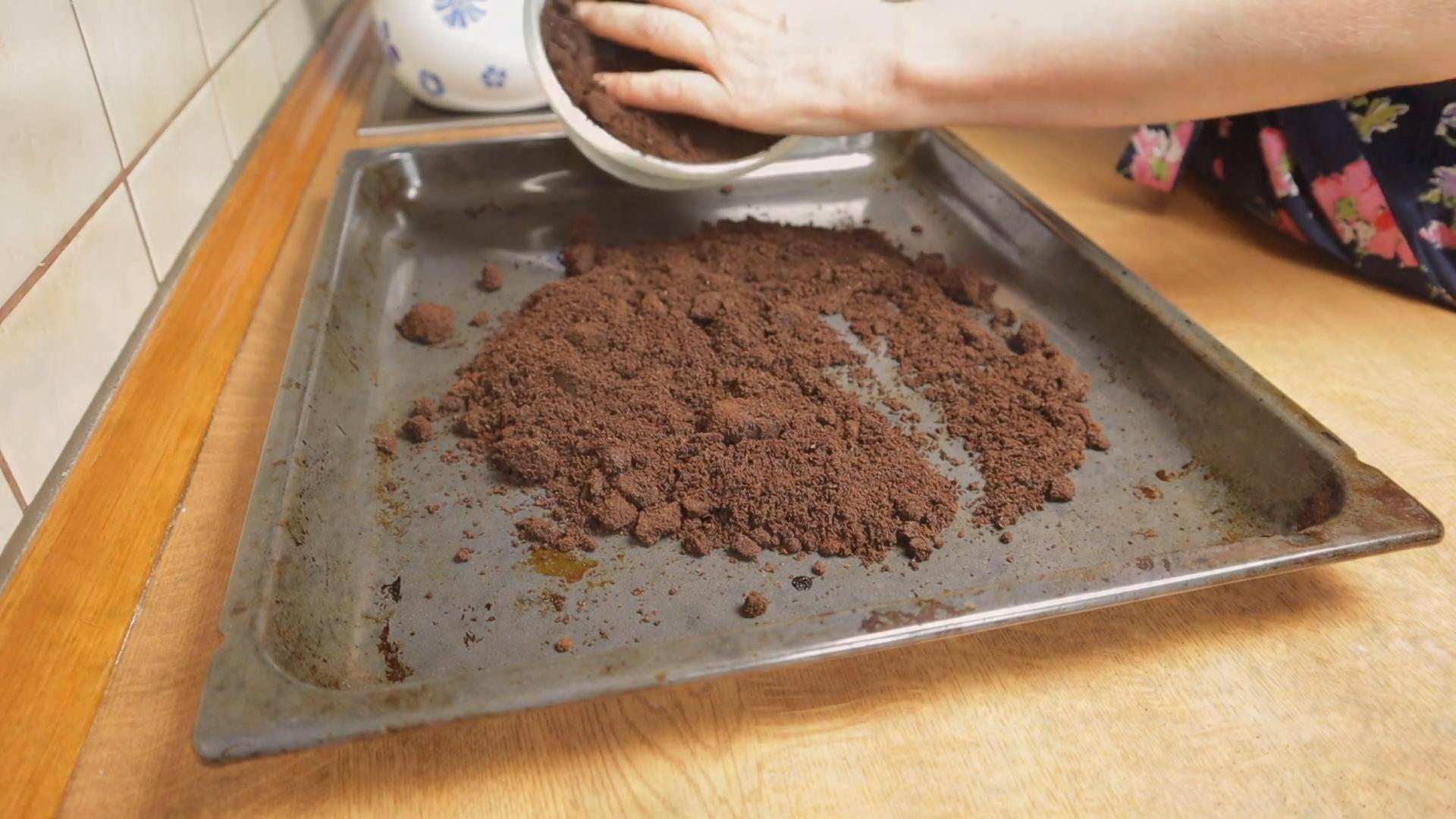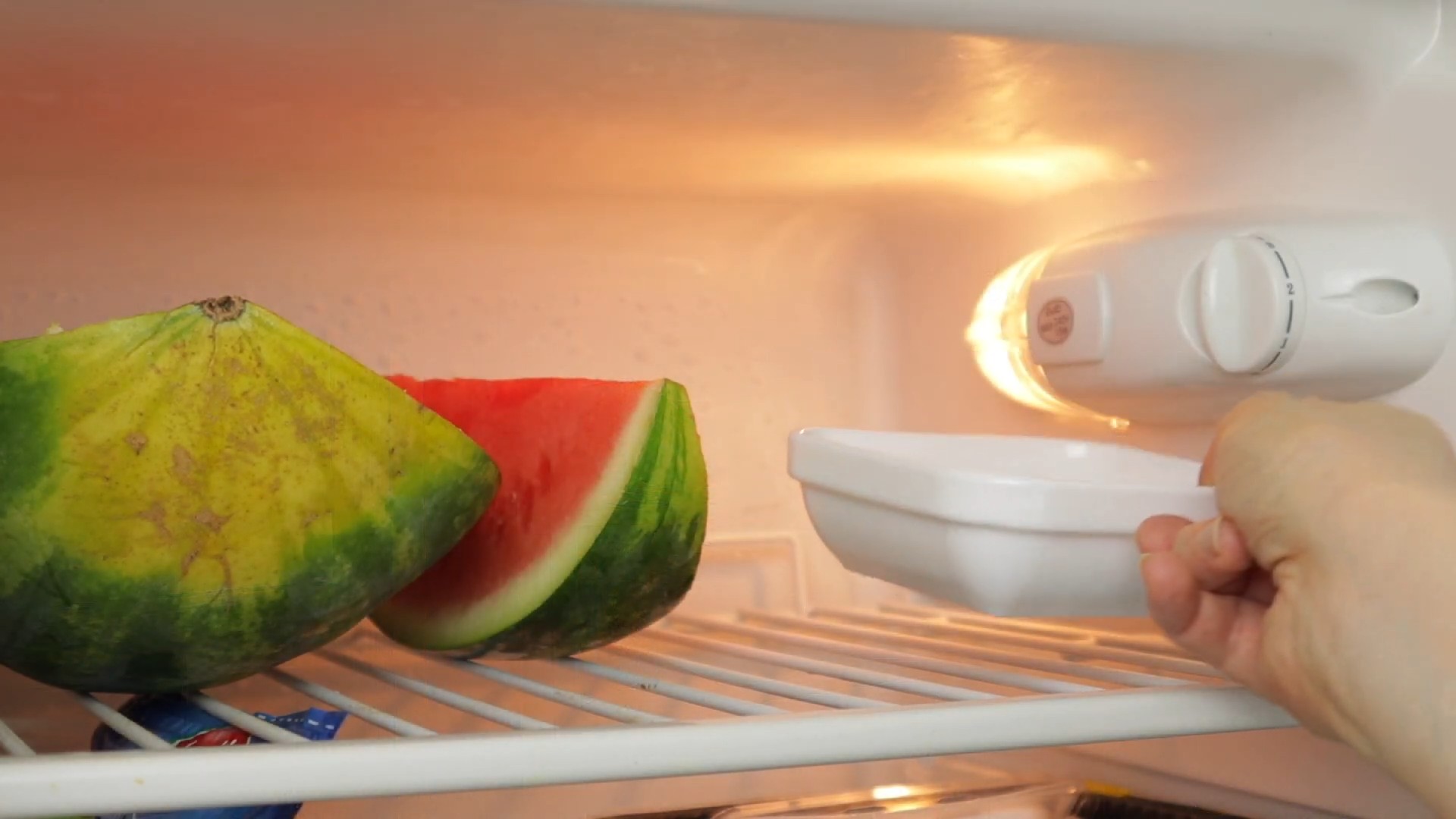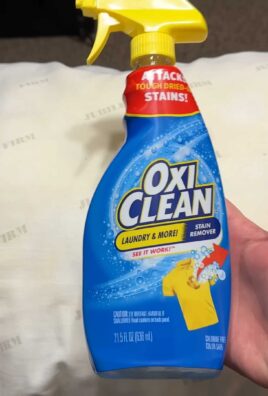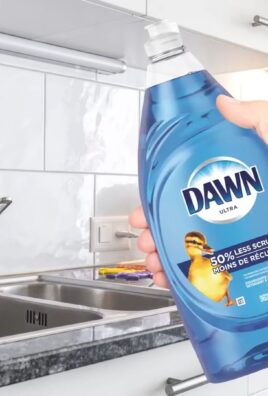Fridge odor removal can feel like an endless battle, can’t it? You open the refrigerator door, expecting a refreshing blast of coolness, but instead, you’re greeted by a funky, unidentifiable smell. It’s a common problem, and trust me, you’re not alone! For generations, homemakers have struggled with keeping their refrigerators fresh, experimenting with everything from baking soda to lemon halves. Think of your grandmother’s fridge – probably a simpler model, but the challenge of keeping it odor-free was the same!
But why is fridge odor removal so important? Beyond the unpleasantness, lingering smells can actually affect the taste of your food, and even worse, indicate the presence of bacteria or mold. Nobody wants that! That’s why I’ve compiled this collection of DIY tricks and hacks to help you banish those unwanted smells for good. We’ll explore simple, effective solutions using everyday items you probably already have in your kitchen. Get ready to say goodbye to fridge funk and hello to a fresh, clean refrigerator!

DIY Fridge Odor Removal: A Comprehensive Guide
Hey everyone! Is your fridge smelling less like fresh groceries and more like… well, something you’d rather not describe? Don’t worry, you’re not alone! Fridge odors are a common problem, but thankfully, they’re usually pretty easy to tackle with some simple DIY solutions. I’m going to walk you through a few different methods to banish those funky smells and get your fridge smelling fresh again.
Identifying the Culprit
Before we jump into cleaning, let’s play detective! Figuring out the source of the odor is crucial for effective removal.
* Check Expiration Dates: This is the first and most obvious step. Toss out anything that’s past its prime. I’m talking about that yogurt that’s been lurking in the back for weeks, or that forgotten container of leftovers.
* Inspect for Spills: Look for any spills or leaks, especially in drawers and on shelves. Even small spills can create lingering odors. Pay close attention to meat and dairy products, as they tend to be the biggest offenders.
* Sniff Test: Yes, I know it sounds unpleasant, but a targeted sniff test can help pinpoint the source. Get up close and personal with different areas of your fridge to identify where the smell is strongest.
* Check the Drain Hole: Many fridges have a small drain hole in the back that can get clogged with food particles and debris. This can lead to a build-up of stagnant water and, you guessed it, nasty smells.
Method 1: The Baking Soda Powerhouse
Baking soda is a classic odor absorber, and it’s incredibly effective for fridge odors. This is usually my go-to method because it’s so simple and inexpensive.
Materials You’ll Need:
* Baking soda
* Shallow container (like a small bowl or open box)
* Water (optional, for a paste)
* Clean cloth or sponge
Step-by-Step Instructions:
1. Empty the Fridge: Remove all food items from your fridge. This allows you to thoroughly clean and address the odor without any obstacles. Place perishable items in a cooler with ice packs to keep them cold.
2. Prepare the Baking Soda: There are two ways to use baking soda:
* Open Box Method: Simply pour baking soda into a shallow container. The larger the surface area exposed to the air, the more effective it will be.
* Baking Soda Paste Method: Mix baking soda with a small amount of water to create a paste. This is great for scrubbing stubborn stains or dried spills.
3. Place the Baking Soda:
* Open Box Method: Place the open container of baking soda in the back of your fridge. This is where odors tend to accumulate.
* Baking Soda Paste Method: Apply the paste to any areas with visible stains or spills. Let it sit for 15-20 minutes to absorb the odor.
4. Clean the Fridge: While the baking soda is working its magic, wipe down all surfaces of your fridge with a clean cloth or sponge. You can use a mild dish soap solution for extra cleaning power, but be sure to rinse thoroughly with clean water.
5. Rinse and Dry: If you used the baking soda paste, rinse the areas thoroughly with clean water. Dry all surfaces with a clean towel.
6. Replace the Baking Soda Regularly: For optimal odor absorption, replace the baking soda every month or two. You can also use a baking soda fridge deodorizer, which is specifically designed for this purpose.
Method 2: The Vinegar Solution
Vinegar is another excellent natural cleaner and deodorizer. Its acidic properties help to neutralize odors and kill bacteria.
Materials You’ll Need:
* White vinegar
* Water
* Spray bottle
* Clean cloth or sponge
Step-by-Step Instructions:
1. Empty the Fridge: Just like with the baking soda method, start by removing all food items from your fridge and placing them in a cooler.
2. Prepare the Vinegar Solution: Mix equal parts white vinegar and water in a spray bottle.
3. Spray and Wipe: Spray the vinegar solution onto all surfaces of your fridge, including shelves, drawers, and walls.
4. Let it Sit: Allow the vinegar solution to sit for 5-10 minutes to allow it to penetrate and neutralize odors.
5. Wipe Clean: Wipe down all surfaces with a clean cloth or sponge.
6. Dry Thoroughly: Dry all surfaces with a clean towel to prevent water spots and further odor development.
7. Vinegar Bowl (Optional): For persistent odors, you can also place a bowl of white vinegar in the fridge overnight. This will help to absorb any remaining smells.
Method 3: The Activated Charcoal Champion
Activated charcoal is a highly porous material that’s incredibly effective at absorbing odors and toxins. It’s a great option for tackling particularly stubborn fridge smells.
Materials You’ll Need:
* Activated charcoal (available in powder or briquette form)
* Shallow container (like a small bowl or open box)
* Coffee filter or cheesecloth (optional, for containing the charcoal powder)
Step-by-Step Instructions:
1. Empty the Fridge: Remove all food items from your fridge and place them in a cooler.
2. Prepare the Activated Charcoal:
* Powder Form: If using activated charcoal powder, place it in a coffee filter or cheesecloth and tie it securely to prevent it from spilling.
* Briquette Form: If using activated charcoal briquettes, simply place them in a shallow container.
3. Place the Activated Charcoal: Place the container of activated charcoal in the back of your fridge.
4. Leave it Overnight: Allow the activated charcoal to sit in the fridge overnight, or even for a few days for particularly strong odors.
5. Remove and Dispose: Remove the activated charcoal and dispose of it properly. Do not reuse it for other purposes.
6. Wipe Down (Optional): If any charcoal dust has settled in the fridge, wipe down the surfaces with a clean cloth.
Method 4: The Lemon Freshness Boost
Lemons are not only great for adding flavor to your food, but they’re also excellent natural deodorizers. Their citrusy scent can help to freshen up your fridge and eliminate unpleasant odors.
Materials You’ll Need:
* Lemon
* Knife
* Small plate or bowl
Step-by-Step Instructions:
1. Empty the Fridge: Remove all food items from your fridge and place them in a cooler.
2. Prepare the Lemon: Cut the lemon in half.
3. Place the Lemon: Place the lemon halves, cut-side up, on a small plate or bowl in your fridge.
4. Leave it Overnight: Allow the lemon to sit in the fridge overnight, or even for a few days for a stronger effect.
5. Replace Regularly: Replace the lemon halves every few days, or when they start to dry out.
Method 5: The Coffee Ground Absorber
Used coffee grounds are another surprisingly effective odor absorber. Don’t throw them away after your morning brew – put them to work in your fridge!
Materials You’ll Need:
* Used coffee grounds (completely dry)
* Shallow container (like a small bowl or open box)
Step-by-Step Instructions:
1. Empty the Fridge: Remove all food items from your fridge and place them in a cooler.
2. Prepare the Coffee Grounds: Make sure the used coffee grounds are completely dry. You can spread them out on a baking sheet and let them air dry, or dry them in a low oven.
3. Place the Coffee Grounds: Place the dry coffee grounds in a shallow container.
4. Leave it Overnight: Allow the coffee grounds to sit in the fridge overnight, or even for a few days for a stronger effect.
5. Remove and Dispose: Remove the coffee grounds and dispose of them properly.
Preventing Future Fridge Odors
Once you’ve successfully eliminated the odors, it’s important to take steps to prevent them from returning. Here are a few tips:
* Regular Cleaning: Clean your fridge regularly, at least once a month. Wipe up spills immediately and discard expired food promptly.
* Proper Food Storage: Store food in airtight containers to prevent odors from escaping and contaminating other items.
* Use Odor Absorbers: Keep a container of baking soda, activated charcoal, or coffee grounds in your fridge at all times to absorb odors.
* Check the Drain Hole: Regularly check the drain hole in the back of your fridge and clean it out if necessary.
* Air Circulation: Make sure your fridge is

Conclusion
So, there you have it! This simple, yet incredibly effective DIY trick for fridge odor removal is a game-changer for anyone who’s ever been assaulted by a mysterious, lingering smell emanating from their refrigerator. We’ve all been there – opening the fridge door with anticipation, only to be met with a less-than-pleasant aroma that makes you question the freshness of everything inside. But fear not, because this solution is not only easy to implement with readily available ingredients, but it’s also a far more sustainable and cost-effective alternative to constantly buying commercial odor absorbers.
Why is this a must-try? Because it works! It’s a proactive approach to maintaining a fresh and clean fridge environment, preventing those embarrassing moments when guests open your refrigerator and are greeted by an unwelcome scent. It’s also about preserving the quality of your food. Lingering odors can actually affect the taste of other items in your fridge, especially those with delicate flavors. By eliminating these odors, you’re ensuring that your food stays fresher for longer and tastes exactly as it should.
Beyond the basic baking soda method, there are several variations you can explore to customize your odor-fighting strategy. For instance, if you’re dealing with particularly stubborn smells, try adding a few drops of essential oils to your baking soda mixture. Lemon, tea tree, or grapefruit essential oils are excellent choices for their antibacterial and deodorizing properties. Alternatively, you can use activated charcoal instead of baking soda. Activated charcoal is incredibly porous and has an even greater capacity for absorbing odors. Simply place a small bowl of activated charcoal in your fridge, just as you would with baking soda.
Another variation involves using coffee grounds. Used coffee grounds, after they’ve cooled completely, can be placed in a bowl in your fridge to absorb odors. The coffee aroma itself can also help to mask any lingering smells. Remember to replace the coffee grounds every few days, as they will eventually lose their effectiveness.
For a more long-term solution, consider incorporating regular fridge cleaning into your routine. Wipe down shelves and drawers with a mixture of warm water and vinegar to eliminate any spills or food residue that might be contributing to the odor. Pay special attention to areas where food tends to accumulate, such as the back of the fridge and the crisper drawers.
We are confident that this DIY fridge odor removal trick will transform your refrigerator from a source of potential embarrassment into a haven of freshness. But don’t just take our word for it – we encourage you to try it out for yourself! The process is simple, the ingredients are inexpensive, and the results are truly remarkable.
Once you’ve given it a try, we’d love to hear about your experience. Share your results, any variations you experimented with, and any tips you discovered along the way in the comments section below. Let’s create a community of fridge odor-fighting experts and help everyone enjoy a fresher, cleaner, and more pleasant refrigerator experience! Your insights could be invaluable to others struggling with the same issue. So, go ahead, banish those fridge odors and share your success story!
Frequently Asked Questions (FAQ)
Why does my fridge smell in the first place?
The most common cause of fridge odors is spoiled food. Even a small amount of forgotten leftovers or a leaky container can create a breeding ground for bacteria and mold, which produce unpleasant smells. Other culprits include:
* **Spills and splatters:** Food spills, especially milk or juice, can quickly turn sour and create a lingering odor.
* **Uncovered food:** Strong-smelling foods like onions, garlic, and certain cheeses can release their odors into the fridge, affecting the taste and smell of other items.
* **Lack of ventilation:** A tightly packed fridge can restrict airflow, trapping odors and creating a humid environment that encourages bacterial growth.
* **Dirty drip pan:** The drip pan beneath your fridge can accumulate water and debris, leading to mold and mildew growth.
* **Old or expired food:** Even if food doesn’t look or smell obviously spoiled, it can still contribute to fridge odors as it ages.
How often should I replace the baking soda (or other odor absorber) in my fridge?
For baking soda, it’s generally recommended to replace it every one to three months. The frequency depends on how strong the odors are in your fridge and how full it is. If you notice the baking soda starting to clump or absorb moisture, it’s a sign that it’s time for a fresh box. For activated charcoal, replace it every two to three months. Coffee grounds should be replaced every few days. Regularly checking and replacing your odor absorber will ensure that it remains effective in keeping your fridge smelling fresh.
What if baking soda doesn’t completely eliminate the odor?
If baking soda alone isn’t doing the trick, try these additional strategies:
* **Thoroughly clean your fridge:** Remove all food items and wipe down every surface with a mixture of warm water and vinegar. Pay special attention to shelves, drawers, and door seals.
* **Check for hidden spills:** Look for spills in hard-to-reach areas, such as behind shelves or in the back of drawers.
* **Clean the drip pan:** Remove and clean the drip pan beneath your fridge with soap and water.
* **Use multiple odor absorbers:** Place several bowls of baking soda or activated charcoal in different areas of your fridge.
* **Try a commercial odor absorber:** If all else fails, consider using a commercial fridge odor absorber, but be sure to choose one that is non-toxic and food-safe.
* **Consider the age of your fridge:** In rare cases, persistent odors can be a sign of a more serious problem, such as mold growth within the fridge’s insulation. If you suspect this, you may need to consult with a appliance repair professional.
Can I use vinegar to remove fridge odors?
Yes, vinegar is an excellent natural deodorizer. You can place a bowl of white vinegar in your fridge to absorb odors, or you can use a mixture of vinegar and water to wipe down the interior surfaces. Vinegar is particularly effective at neutralizing strong smells like onions and garlic. However, be aware that vinegar has a strong smell of its own, which may linger for a short time after cleaning.
Are there any foods that I should avoid storing in the fridge to prevent odors?
Certain foods are more likely to contribute to fridge odors than others. These include:
* **Strong-smelling cheeses:** Blue cheese, Limburger, and other pungent cheeses can release strong odors that permeate the fridge. Store these cheeses in airtight containers.
* **Onions and garlic:** These vegetables have a strong odor that can easily transfer to other foods. Store them in sealed bags or containers.
* **Fish and seafood:** Fish and seafood can quickly develop a strong odor if not stored properly. Wrap them tightly in plastic wrap or place them in airtight containers.
* **Leftovers:** Leftovers should be stored in airtight containers to prevent them from spoiling and creating odors.
How can I prevent fridge odors in the future?
Preventing fridge odors is much easier than trying to eliminate them after they’ve already developed. Here are some tips for keeping your fridge smelling fresh:
* **Regularly clean your fridge:** Wipe down spills and remove expired food items promptly.
* **Store food properly:** Use airtight containers to store leftovers and strong-smelling foods.
* **Don’t overpack your fridge:** Allow for adequate airflow to prevent odors from becoming trapped.
* **Use an odor absorber:** Place a box of baking soda or activated charcoal in your fridge to absorb odors.
* **Check the temperature:** Ensure that your fridge is set to the correct temperature (between 35°F and 38°F) to prevent food from spoiling too quickly.
* **Clean the drip pan regularly:** This will prevent mold and mildew growth.
Is it safe to use essential oils in the fridge?
While essential oils can be effective at deodorizing, it’s important to use them sparingly and choose oils that are food-safe. Lemon, grapefruit, and tea tree essential oils are generally considered safe for use in the fridge. However, avoid using essential oils that are toxic or irritating. When using essential oils, add only a few drops to your baking soda mixture or place them on a cotton ball in a small dish. Be sure to keep essential oils away from direct contact with food.





Leave a Comment